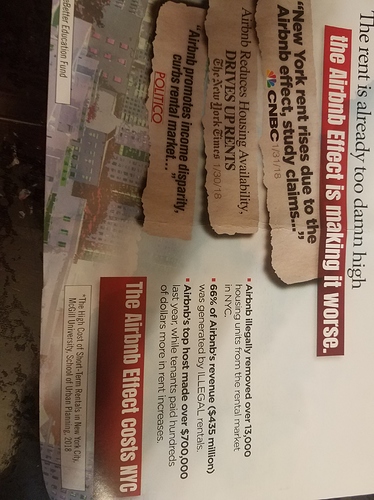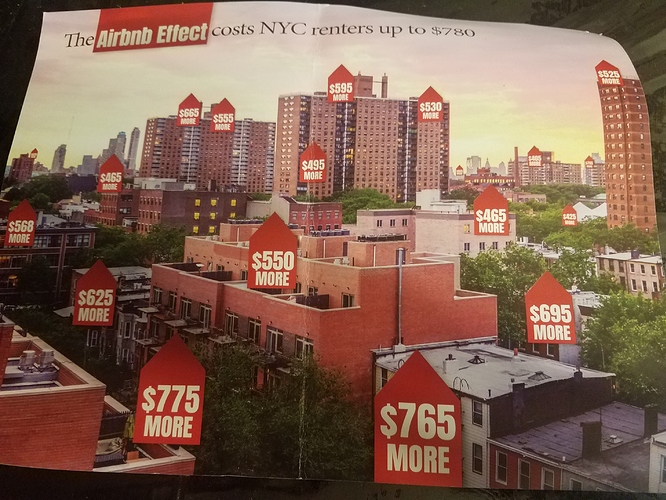This is a very alarming thread indeed. I am hoping to be lost in the numbers, and to scoot by unnoticed. What some of the people above don’t understand about the law, is that police can arrest you for suspicion of almost anything, and if a prosecutor wants they can continue to charge you for that offense, regardless of whether you did anything, and regardless of whether the prosecutor actually believes you did anything. Not until you get in front of a judge can you argue your side of the story, and if it is a frivolous charge, the judge can dismiss the case there (and reprimand the prosecutor).
Legal consensus has been that renting to ‘boarders’ is perfectly fine. That doesn’t mean OSE can’t drag you to court and otherwise intimidate/threaten/scare you.
In reading mainstream articles about NYC hosts being caught, it seems like people with egregious violations were the first targeted, probably because they were easiest and the city can earn the most $$ off of fines from them. (i.e. the person who turns an entire apartment building into only AirBnBs. )
My next thought along the lines of self-preservation, is assuming/hoping enforcement will be targeted to those who AirBnB rent-controlled buildings. Rent controlled places are subject to a variety of additional regulations, and it is probably harder to defend in court if you’re paying $500 rent but making $10k in monthly profit.
Now, I’d love to talk to the people at this meeting and hear what their situations are and see if it comports with what I thought previously.


